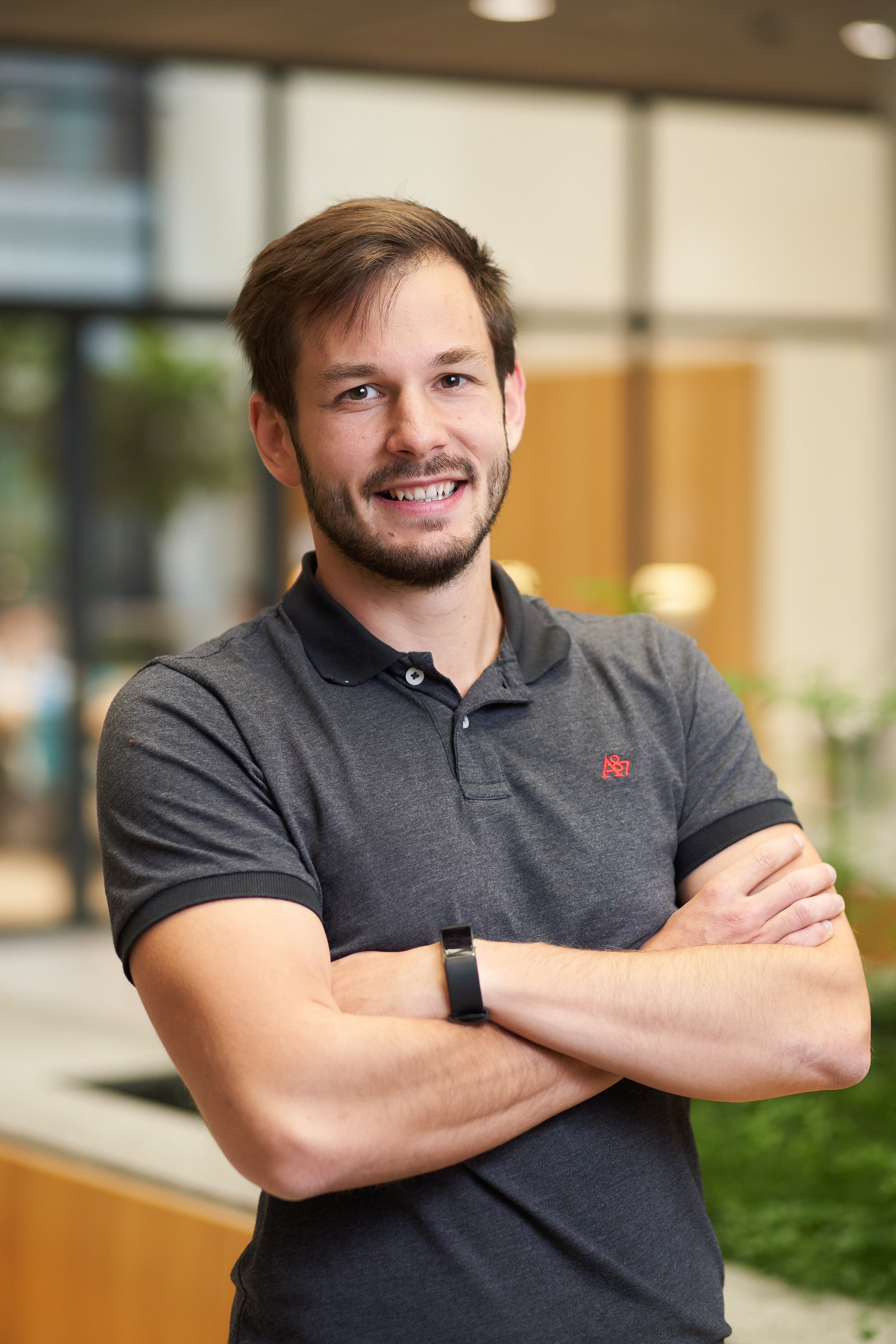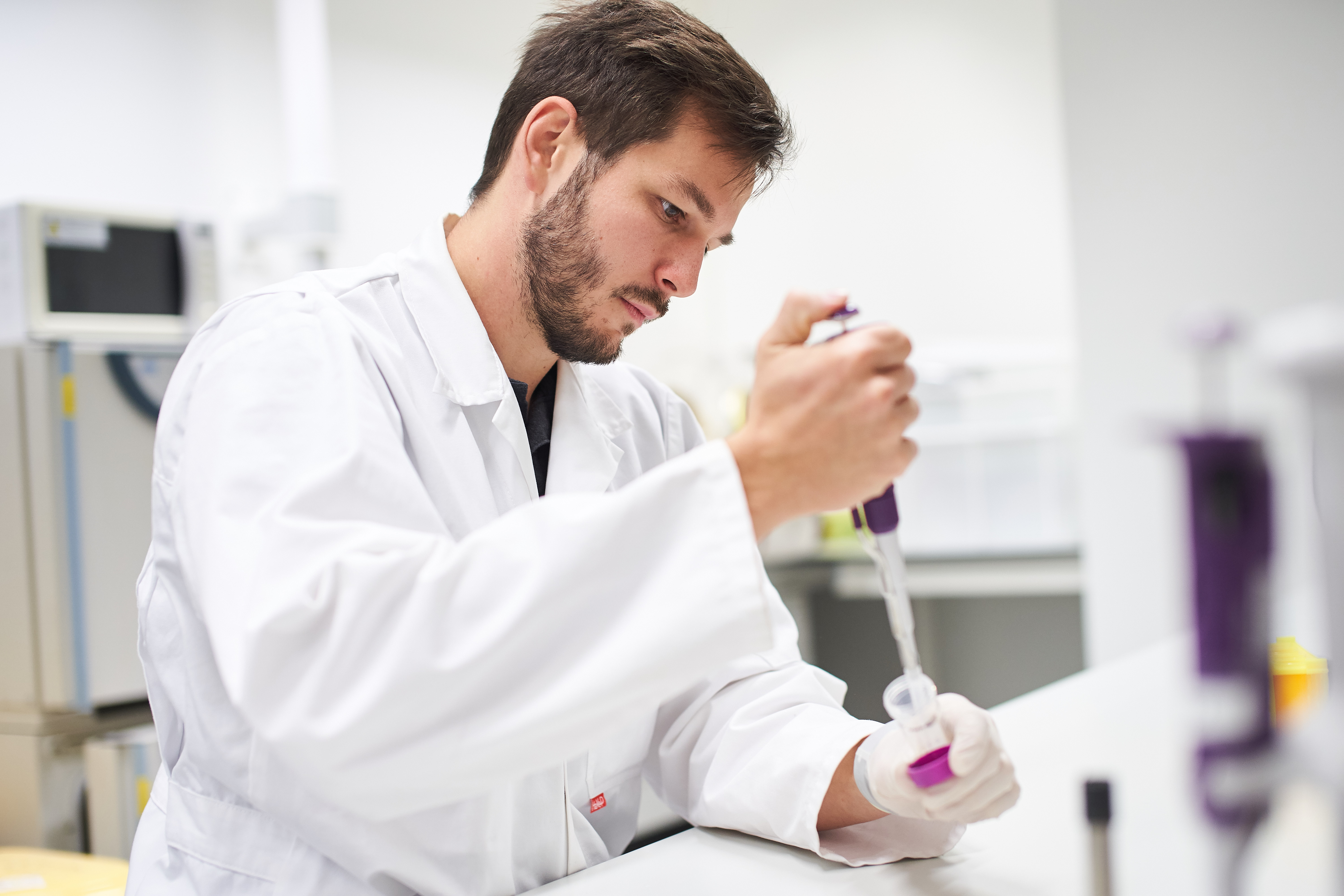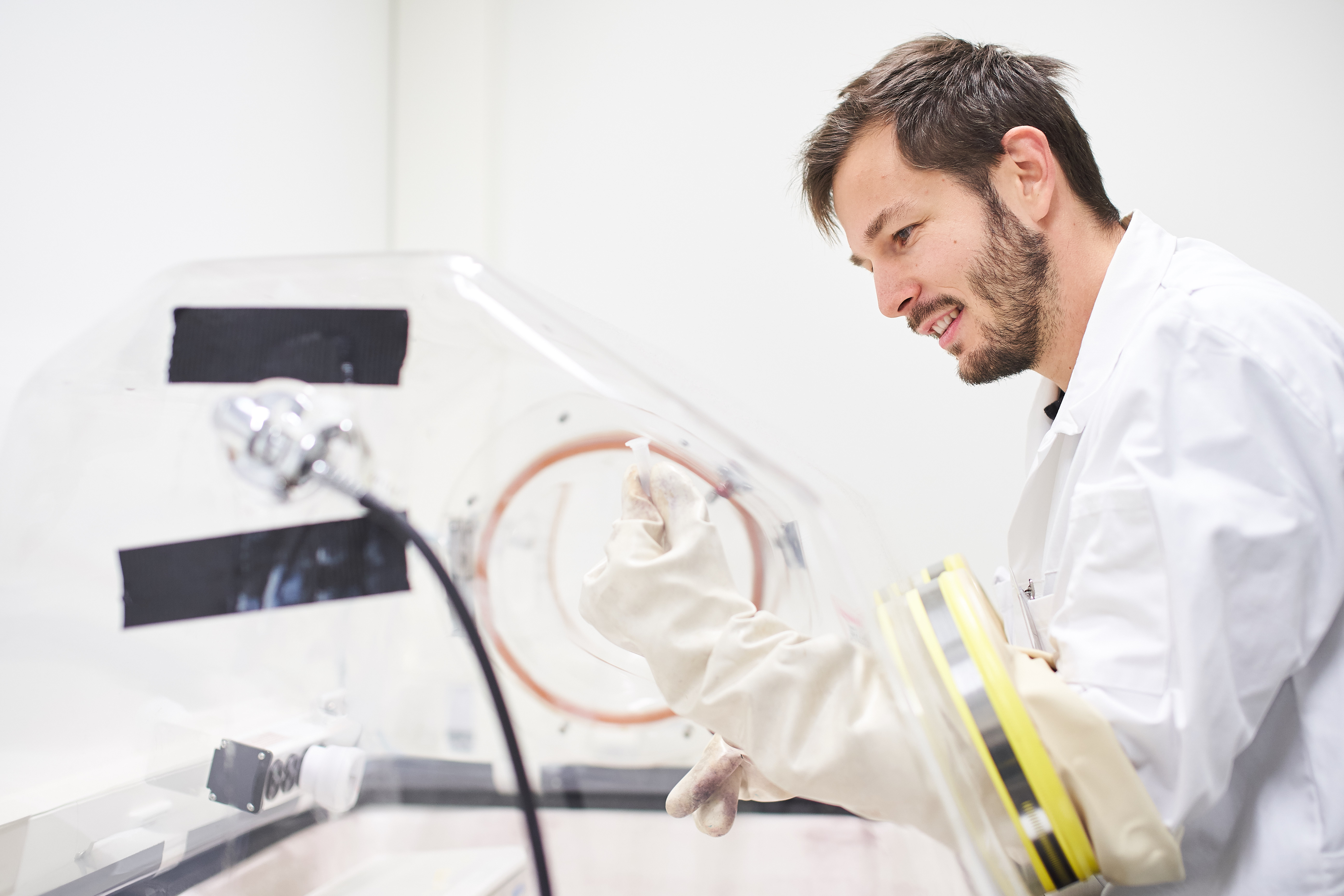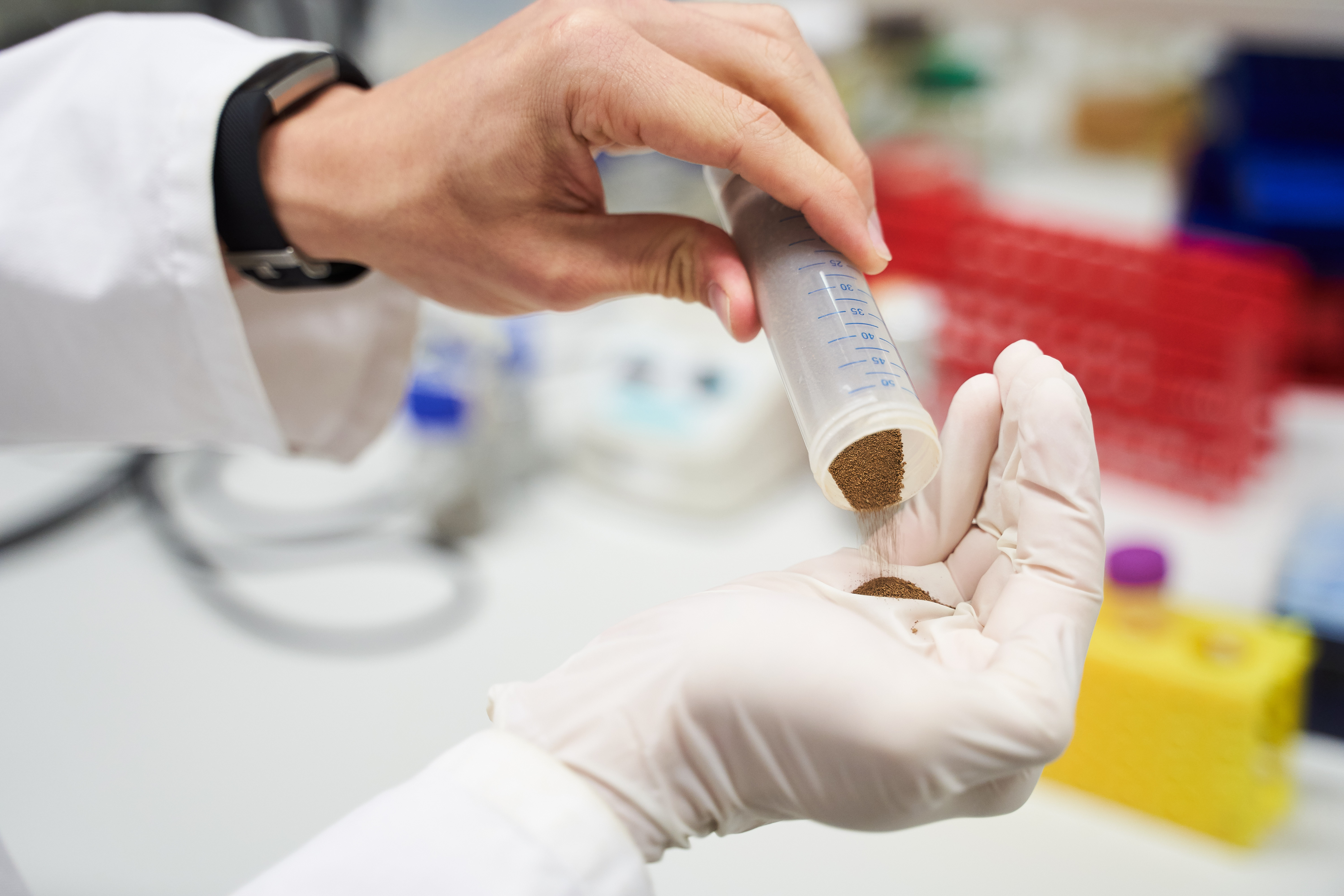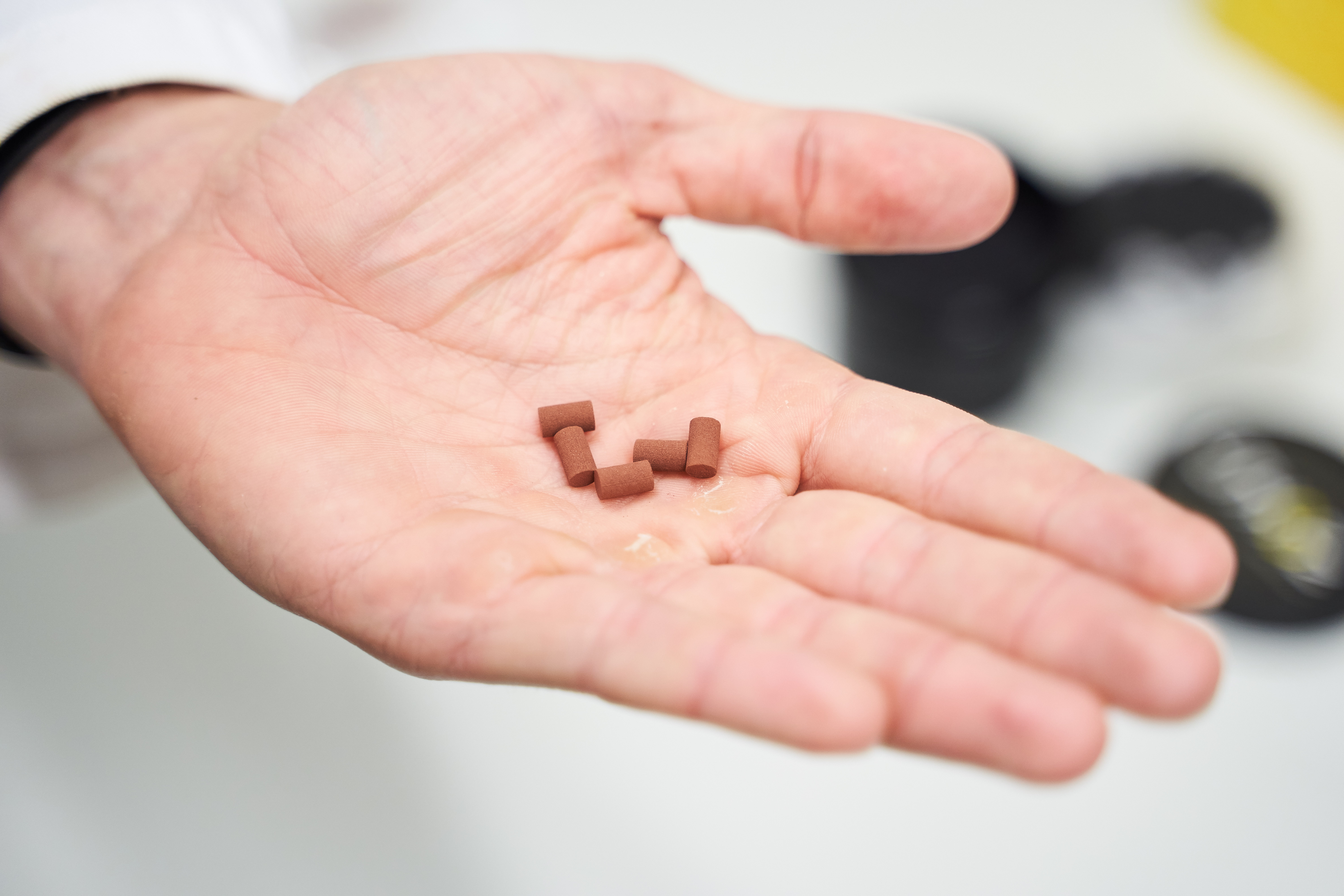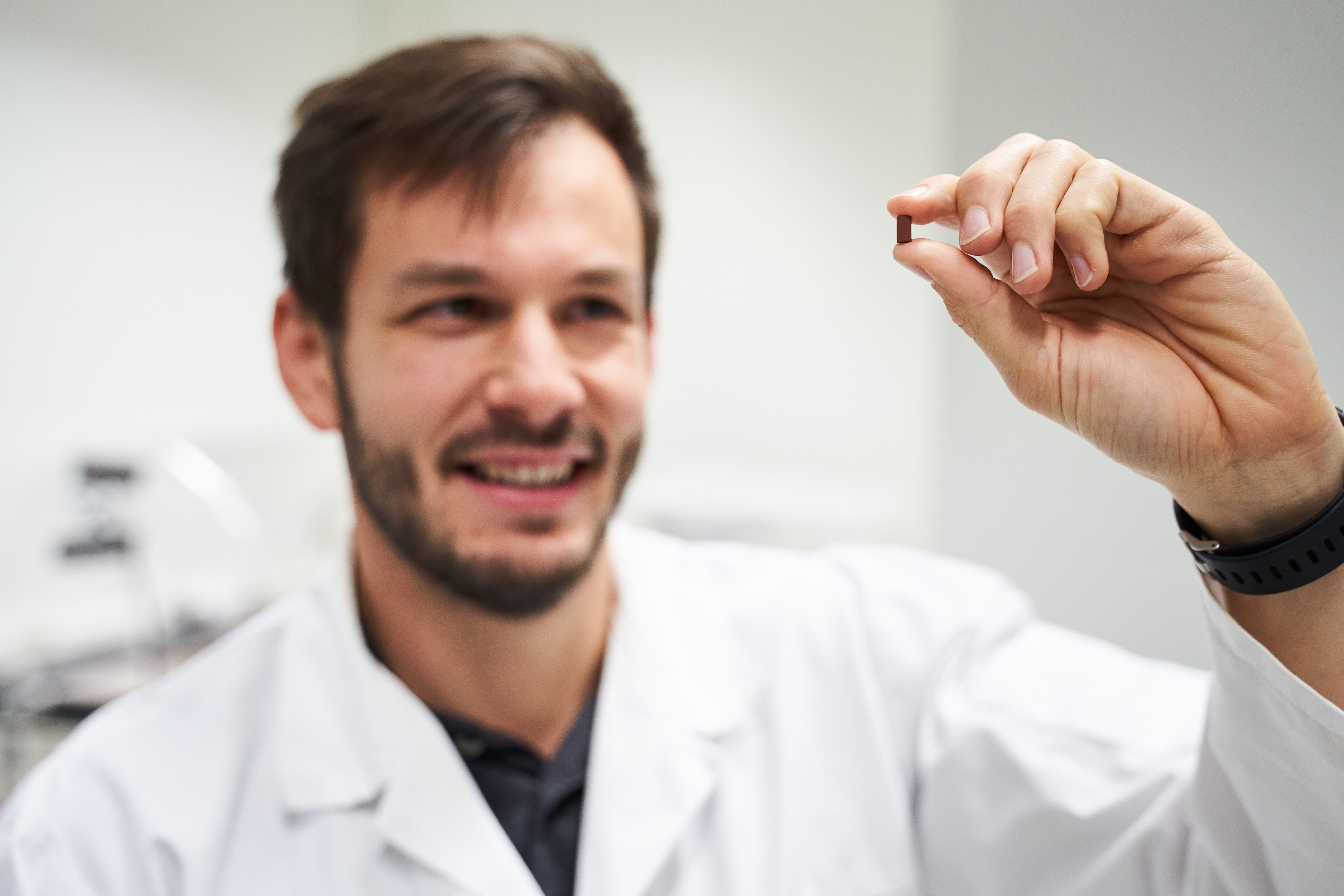Bacterial extraction of graphene and iron from Martian soil
Benjamin Lehner
Benjamin Lehner is a man with quite the résumé. He began his PhD in Synthetic Microbiology & Material Science at TU Delft in 2016. Soon after, he conducted research for NASA on the utilization of bacteria in space. He also worked with ESA on bacterial applications for a moon outpost. Currently, he is researching the use of bacteria in the extraction of minerals from Martian and lunar soil. He also plans to join the startup IntuAir that uses microbes to purify air in cities like Munich. “There is much that can be achieved by using bacteria and space technology to solve problems here on Earth, and I want to be a part of that”, he says. Benjamin’s work combines efforts to protect our environment and enable the future colonization of other worlds in our solar system. Despite his busy schedule, he kindly agrees to talk to me about his research, his recent talk at TEDx Delft and his love for the outdoors.
By Vishal Onkhar, and photos by Ernst de Groot
Background
Benjamin is your typical Austrian – over six feet tall, well-built and with a love for nature. Born in the Austrian countryside in the town of Attnang-Puchheim, he grew up hiking mountains and swimming in freshwater lakes. After a background in biology, he did an internship at ESA, which he subsequently converted into a research position. He soon joined TU Delft for his PhD, choosing it over ETH Zurich due to its proximity to ESA. He says he’s glad he took this decision, because his knowledge of material science and biology here opened up possibilities for him at NASA. Since a young age, he has professed a love for space exploration and so being able to contribute to that effort was a dream come true for him.
Projects at TU Delft
I ask him about the nature of his projects at TU Delft. “Shewanella”, Benjamin begins, “is a bacterium that has many uses”. He tells me that it’s an excellent reducing agent and so is very efficient at converting graphene oxide into graphene in a cost-effective and environment-friendly manner. Graphene is important because it possesses the same desirable properties as a combination of many metals. “It’s light, compact, has a tensile strength higher than that of steel, and is more electrically conductive than copper or even silver!” he exclaims. This makes graphene ideal for space electronics, and so a sustainable and minimal resource consuming method to produce it in bulk is the need of the hour, which is where Benjamin’s work fits in.
Shewanella can apparently also reduce iron from its Fe3+ state to its Fe2+ state, making it more magnetic and able to be extracted from soil using magnets. “These techniques may not seem like much on Earth, but in space, where resources are scarce, we must make do with whatever we can find”, says Benjamin gravely. He adds that the obtained material can be used for repairs to equipment on other worlds. Thus, he strives to perfect the bacterial extraction of minerals on simulant samples of Martian and lunar soil, also called regolith. “Of course, we have to be content with simulants for now”, he sighs, “since we don’t actually have Martian regolith samples, and the lunar ones are too few and precious”.
Projects at NASA and ESA
I ask him how all this is related to his work at the space agencies. Benjamin says his work for NASA and ESA was on the survival and in-situ resource utilization of bacteria on space missions. It involved the testing of various microbes in bioreactors, the logistics of incorporating microorganisms into robotic missions to these worlds, and the growing of nutrient-producing algae on board as a food source for the bacteria. He explains that bacteria are well-suited for such voyages because they are very resilient, able to reproduce by themselves, resistant to radiation and changes in gravity, and can survive on the little water found beneath the surface of other planets.
Significance
I express my concerns about researching topics that may or may not materialize in the distant future, when there are so many pressing concerns right now on Earth. Benjamin has an answer ready before I finish. “Space exploration is often criticized but people like to forget that it pushes humanity to innovate and collaborate when the odds are stacked heavily against us. A lot of space technology can be applied to life on Earth, from sustainable habitats, to rockets as a means of transportation, to solar cells and nuclear energy for powering equipment, and to the production of copper using microbes”, he says with a smile.
Challenges & learning
When I inquire about the hurdles he faces, Benjamin admits the non-technical aspects in his line of work are a challenge. “Navigating through the bureaucracy and politics can sometimes be difficult due to the high-profile nature of space missions”, he sighs. Benjamin does, however, enjoy interacting with people from different cultures and with different personalities. Since the start of his PhD, he says he has learnt how to work with nanomaterials, supervise students, structure and manage projects, network with academics in his field, speak in front of large audiences like the one at TEDx Delft 2019, and collaborate with governments and universities alike. On being asked further about his talk, he says, “It’s one thing doing an interview like this, but it’s another addressing a crowd and convincing them that microbes are the future”.
Future career
On asking about his plans for the future, Benjamin says he’s done with academics for now and will pursue a career in the industry after his PhD. “I seek a change of pace from the pressures of research and want to try something new”, he tells me. He is in the process of founding a startup called “IntuAir” which applies microbes in life support systems and air purifiers. They develop a room-based device using the combination of algae and bacteria to absorb carbon dioxide, nitrogen dioxide and dust from the atmosphere. This will be an attempt to reduce climate change and create healthy work environments for people. It will first be deployed in Munich, before moving to countries like Mongolia, China, India and Japan that are seriously affected by pollution.
Hobbies
“Surely, someone with such so much on his plate has no time for leisure activities”, I wonder out loud. Benjamin laughs and says he is into tennis and is a licensed martial arts trainer. He regularly trains his friends and colleagues from the Bionanoscience department in calisthenics, which is a form of outdoor workouts that use no equipment. His management of time to pursue so many interests is indeed very commendable!
Cultural differences
Having lived in Austria and Germany before coming to the Netherlands, Benjamin says he has seamlessly integrated into Dutch culture without much effort. He likes how horizontal hierarchy in Dutch workplaces and their famed ‘directness’ makes work easy and efficient. Outside of his job, he misses the raw and wild beauty of Austria, something he realizes the longer he stays away from home, but he is glad that Delft is a very international town because he is exposed to new cultures and cuisines.
Conclusion
Noticing that my allotted time is coming to an end, I thank Benjamin for his time and wrap up the interview. Despite having a busy schedule, he takes some additional time to show me around his lab with the regolith samples and bioreactors. As I peer into the murky solutions stored in glass jars, I can’t help but think that this is perhaps the start of something truly exciting in man’s conquest of space, the final frontier.


